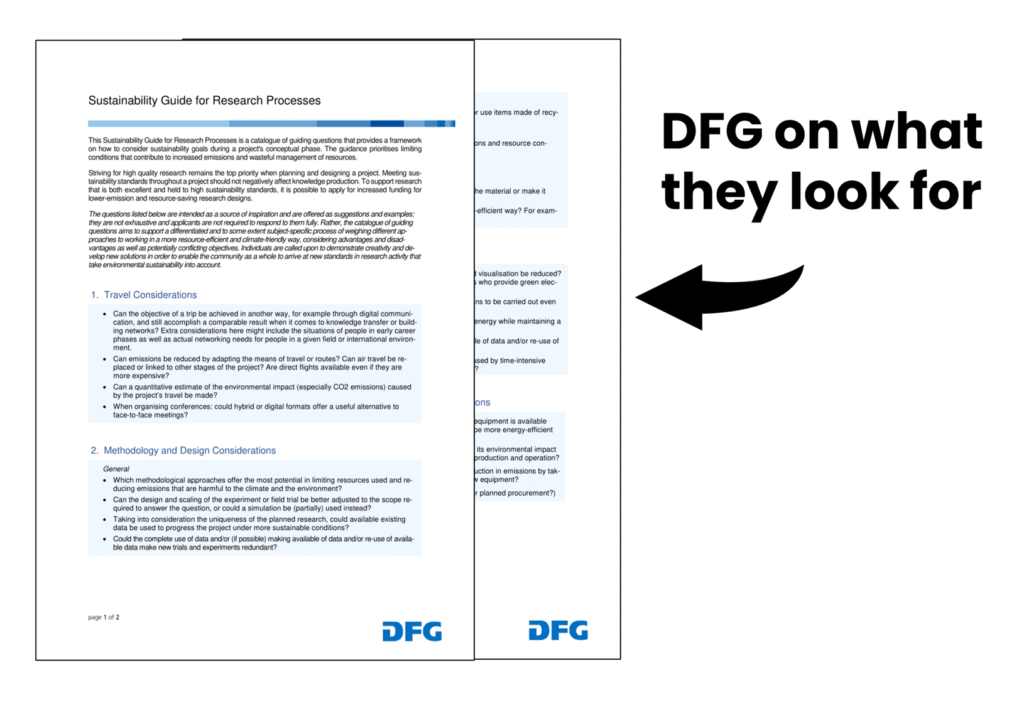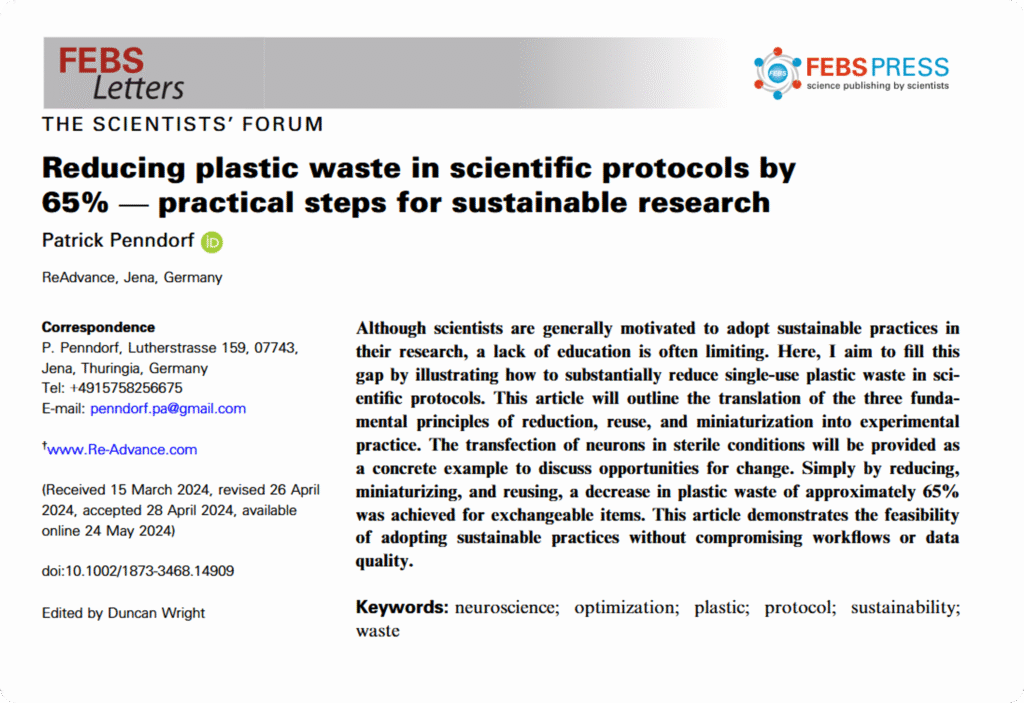As I visited the webpage of one of the world’s biggest funders, I read:
“Wellcome will only fund research that is conducted responsibly. To be responsible, research must be conducted in an environmentally sustainable way.”
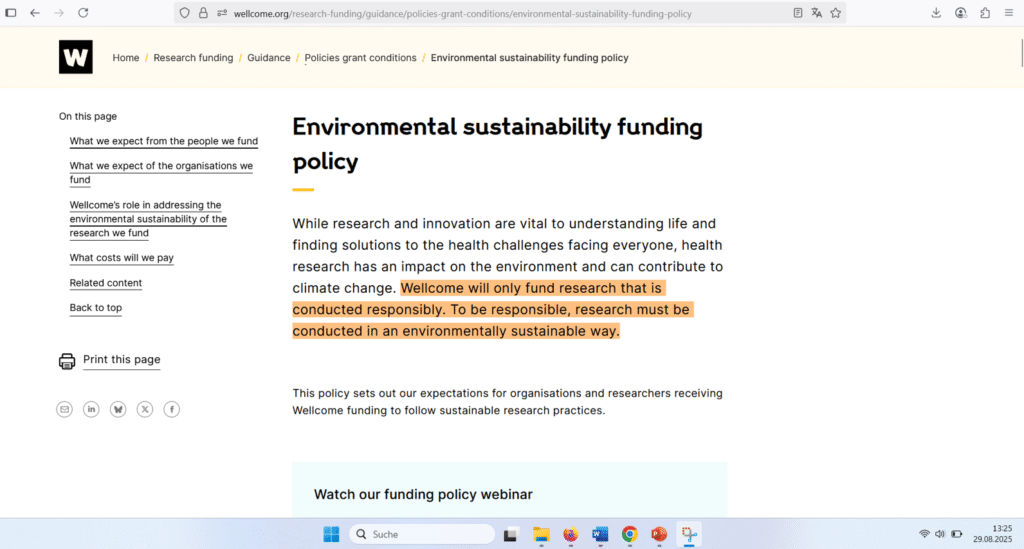
Starting in 2025, Wellcome and Cancer Research UK will only support labs that can prove their sustainability — certified through programs like LEAF or My Green Lab.
Other funders have followed suit. For example, Germany’s DFG already requires applicants to outline which sustainable practices have been implemented in their labs — similar to the existing requirements for statements on animal use and statistics.
We’ll share the full story in our online summit if you’re interested — but here’s what you need to know:
What Exactly Is Happening
Research is resource-hungry. Globally, labs produce more than 5 billion kilograms of plastic waste and consume over 100 million liters of solvents each year.
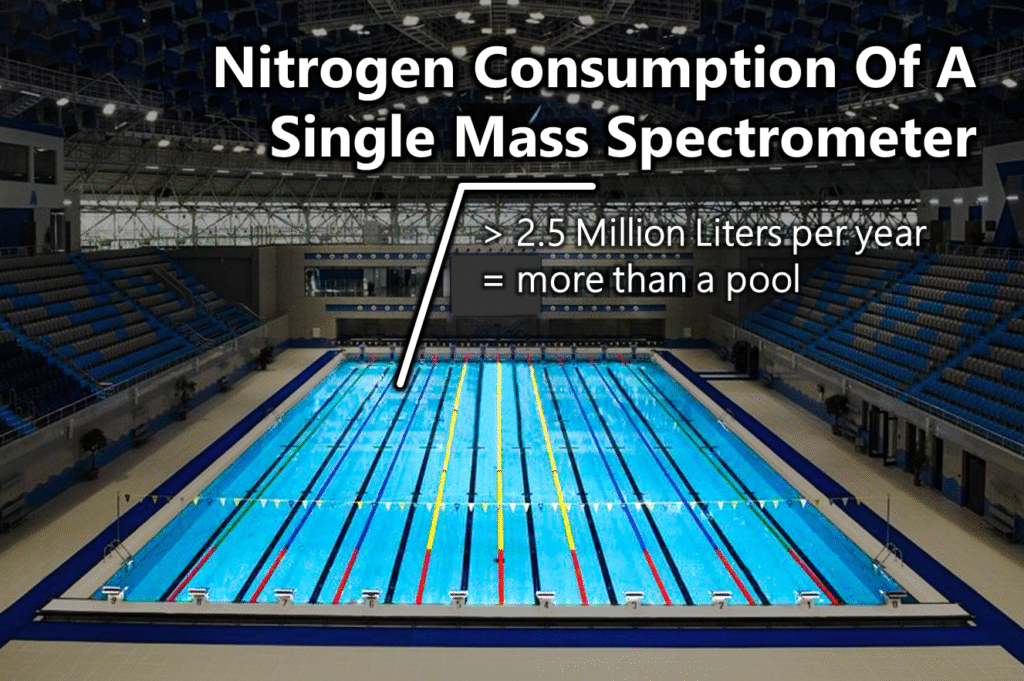
Furthermore, we can estimate that healthcare and biotech together contribute more than 4% of the world’s carbon footprint.
Funders are no longer willing to ignore this.
While Wellcome Trust took the bold first step, several other funding bodies have followed:
In October 2024, seven major European funding bodies signed the Heidelberg Agreement, recognizing the role of sustainability in funding decisions.
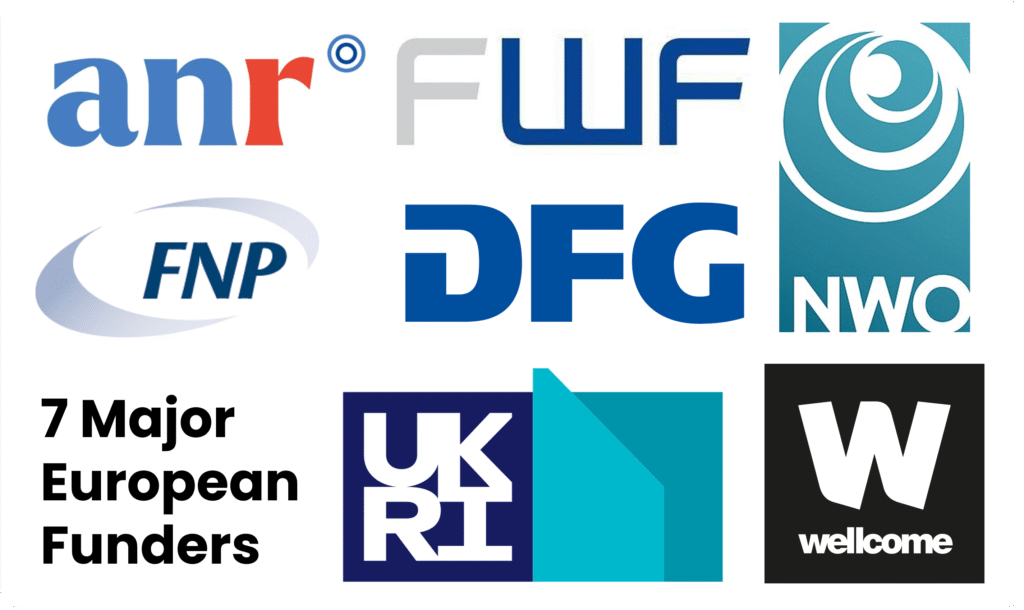
While funding agencies in the US or Asia haven’t yet implemented similar requirements, we’re seeing progress:
- The My Green Lab Certification and the ACT Ecolabel Program have been officially recommended in a joint white paper by the Environmental Protection Agency (EPA), the U.S. Department of Energy, and the University of California, focusing on energy savings.
- Thailand Lab International 2024 dedicated an entire session to the topic.
Awareness is growing — and action is on its way.
Do You Need To Worry?
No — because we’re putting together a webinar to help you prepare for these changes, wherever in the world you are.
We’ll show you how sustainability in labs isn’t just about saving the planet — it’s also about saving time, money, and improving safety. Labs often cut 30–60% of their plastic, reagent, and energy use.
And the best part? It doesn’t take much time, effort, or expertise to get started.
Sustainability in labs touches on aspects we all know from our everyday lives:
- Plastics and single-use items
- Energy and electricity
- Water use
- Chemicals, reagents, and gases
- Instrument use (e.g., freezers, fume hoods)
- Waste treatment
- Travel
Therefore, the key to navigating this transition is simple: don’t get overwhelmed.
It may seem like a lot, but most changes are simple and straightforward – I give you my word.
My tip:
- Collect ideas on what you could improve whenever they come to mind.
- Start with easy changes that are quick to implement, no matter how small they are. Early on, taking action is key. For instance, so far the DFG is totally fine with you getting started.
- Identify teammates who might join you in driving change. This will add motivation and be critical later on.
- If possible, raise the topic in your next lab meeting – often, you will get more buy-in than you might expect.
👉 Bottom line: Sustainability will no longer be optional. Given the growing environmental impact of science, it’s only a matter of time before funding bodies around the world make it a requirement.
Still, properly understood, sustainability essentially means nothing more than generating data more robustly.
> Plus, it’s a smart way to adapt to budget cuts.
If you want to navigate the transition with less stress and time investment, sign up for the online event we put together for you!
Written by Patrick Penndorf
Biochemist with +5 years of applied experience in making science sustainable

